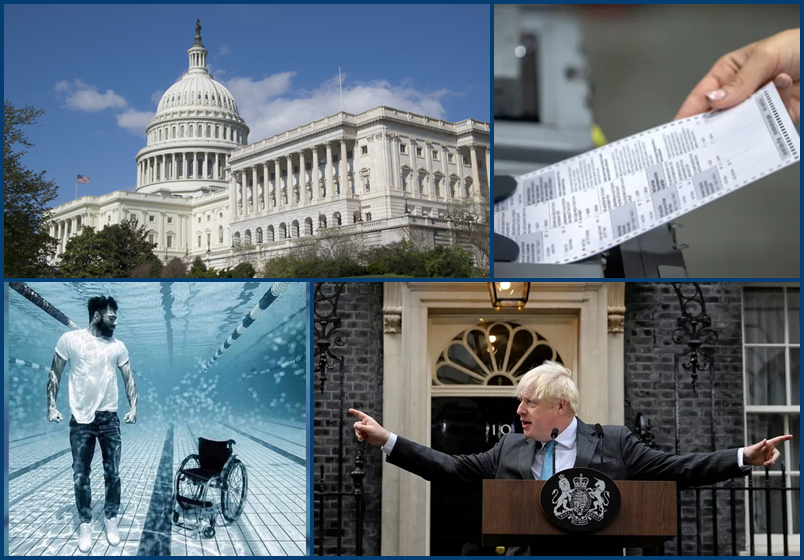Securing Rare Earth Minerals: Avoiding A New Cold War

Table of Contents
The Geopolitical Landscape of Rare Earth Mineral Production
The current geopolitical landscape of rare earth mineral production is deeply concerning. The concentration of mining and processing in a few key nations creates significant vulnerabilities and potential for conflict. This uneven distribution significantly impacts global stability and economic security.
-
Dominance of China in rare earth mining and processing: China currently dominates the global rare earth mining and processing industry, controlling a significant portion of the world's supply. This dominance gives them considerable leverage in international trade and technological development. This creates a potential for resource nationalism and the weaponization of rare earth exports.
-
Dependence of many technologically advanced nations on Chinese supply chains: Many technologically advanced nations, including the United States, Europe, and Japan, are heavily reliant on China for their rare earth mineral needs. This dependence creates significant vulnerabilities in their supply chains, leaving them susceptible to disruptions caused by geopolitical instability or trade disputes. This reliance necessitates diversification strategies to mitigate this risk.
-
Potential for resource nationalism and trade disputes: The concentration of rare earth production creates a high risk of resource nationalism, where countries prioritize their domestic needs over international cooperation. This can lead to trade disputes, export restrictions, and price volatility, disrupting global supply chains and impacting technological innovation. Fair and equitable trade agreements are critical here.
-
The strategic importance of rare earths for technological advancements: Rare earth minerals are critical components in numerous advanced technologies, including electric vehicles, renewable energy technologies (wind turbines, solar panels), military equipment, and consumer electronics. Securing access to these minerals is vital for maintaining technological leadership and national security for many countries.
Diversifying Rare Earth Supply Chains: A Multi-pronged Approach
Lessening our reliance on a single source for rare earth minerals requires a multifaceted strategy focused on diversification and sustainability. This includes exploring alternative sources, improving recycling technologies, and fostering international collaboration.
-
Investing in exploration and mining in other countries: Significant investments are needed in exploration and mining operations in countries like Australia, the USA, Canada, and others with significant rare earth deposits. This requires substantial financial commitments and supportive government policies.
-
Supporting responsible mining practices and environmental sustainability: Sustainable and responsible mining practices are crucial. This involves minimizing environmental impact, protecting local communities, and ensuring fair labor standards throughout the supply chain. Certification schemes and rigorous environmental assessments are vital.
-
Developing advanced recycling technologies to recover rare earths from electronic waste: Recycling offers a significant opportunity to recover rare earth elements from end-of-life products. Technological advancements are needed to make this process more efficient and cost-effective. This reduces dependence on primary mining and offers a sustainable resource pathway.
-
Promoting international cooperation and technology transfer: International collaboration is essential to share knowledge, technology, and best practices related to rare earth mining, processing, and recycling. Technology transfer programs can assist developing nations in responsibly harnessing their resources.
-
Fostering transparent and fair trade agreements: Transparent and equitable trade agreements are needed to ensure fair access to rare earth minerals and prevent unfair trade practices. This requires multilateral cooperation and a commitment to free and open markets.
The Role of Technology in Securing Rare Earth Minerals
Technological innovation is crucial for enhancing the efficiency, sustainability, and security of rare earth mineral extraction and processing. Advancements across the supply chain can significantly improve the situation.
-
Development of more efficient and environmentally friendly mining techniques: New mining techniques can reduce environmental damage and improve the efficiency of resource extraction. This includes in-situ leaching and other methods to minimize surface disturbance.
-
Improvements in separation and purification technologies: Advances in separation and purification technologies are needed to reduce the energy consumption and environmental impact associated with processing rare earth ores. This also improves the efficiency of recovering valuable elements.
-
Advancements in recycling technologies to extract rare earth elements from end-of-life products: Recycling technologies are key to recovering valuable rare earths from discarded electronics and other products. This requires innovation in material separation and purification processes.
-
Utilizing AI and machine learning for resource exploration and optimization: Artificial intelligence and machine learning can be used to improve the efficiency of resource exploration, optimize mining operations, and predict resource availability.
International Cooperation and Policy Initiatives
International cooperation is paramount for addressing the challenges of rare earth mineral security. This requires collaborative policy initiatives focused on responsible sourcing, transparency, and sustainability.
-
Establishing international frameworks for responsible sourcing and trade: International frameworks are needed to establish standards for responsible sourcing and trade of rare earth minerals, promoting transparency and traceability throughout the supply chain.
-
Promoting transparency and traceability in rare earth supply chains: Tracking the origin and movement of rare earth minerals through the supply chain is vital for ensuring responsible practices and preventing conflict minerals from entering the market. Blockchain technology could play a key role here.
-
Implementing multilateral agreements to address environmental concerns and social impacts of mining: Multilateral agreements are needed to address the environmental and social impacts of rare earth mining, ensuring that mining activities are conducted responsibly and sustainably.
-
Encouraging investment in research and development of alternative technologies: Investment in research and development of alternative materials and technologies that reduce reliance on rare earth minerals is crucial for long-term security.
Conclusion
Securing a reliable and sustainable supply of rare earth minerals is crucial for global technological advancement and geopolitical stability. Avoiding a new cold war hinges on a multifaceted approach encompassing diversification of supply chains, technological innovation, responsible mining practices, and robust international cooperation. By prioritizing these strategies, we can collectively mitigate risks and ensure equitable access to these essential resources. Invest in responsible rare earth mineral sourcing and secure our technological future.

Featured Posts
-
 Toxic Chemicals From Ohio Train Derailment Prolonged Presence In Buildings
May 17, 2025
Toxic Chemicals From Ohio Train Derailment Prolonged Presence In Buildings
May 17, 2025 -
 January 6th Hearings Witness Cassidy Hutchinson To Publish Memoir This Fall
May 17, 2025
January 6th Hearings Witness Cassidy Hutchinson To Publish Memoir This Fall
May 17, 2025 -
 Angel Reeses Emotional Tribute To Her Mother Angel Webb Reese
May 17, 2025
Angel Reeses Emotional Tribute To Her Mother Angel Webb Reese
May 17, 2025 -
 The Knicks Tom Thibodeau And A Papal Joke What Does It All Mean
May 17, 2025
The Knicks Tom Thibodeau And A Papal Joke What Does It All Mean
May 17, 2025 -
 Yankees Vs Mariners Expert Mlb Predictions And Betting Picks For Today
May 17, 2025
Yankees Vs Mariners Expert Mlb Predictions And Betting Picks For Today
May 17, 2025
Latest Posts
-
 Josh Hart A New Knicks Triple Double Record Holder
May 17, 2025
Josh Hart A New Knicks Triple Double Record Holder
May 17, 2025 -
 Knicks Josh Hart Breaks Franchise Record For Triple Doubles In A Single Season
May 17, 2025
Knicks Josh Hart Breaks Franchise Record For Triple Doubles In A Single Season
May 17, 2025 -
 Josh Hart Sets New Knicks Single Season Triple Double Record
May 17, 2025
Josh Hart Sets New Knicks Single Season Triple Double Record
May 17, 2025 -
 Josh Hart And Draymond Green Similar Roles Different Teams
May 17, 2025
Josh Hart And Draymond Green Similar Roles Different Teams
May 17, 2025 -
 Josh Harts Historic Triple Double Shattering The Knicks Franchise Record
May 17, 2025
Josh Harts Historic Triple Double Shattering The Knicks Franchise Record
May 17, 2025
